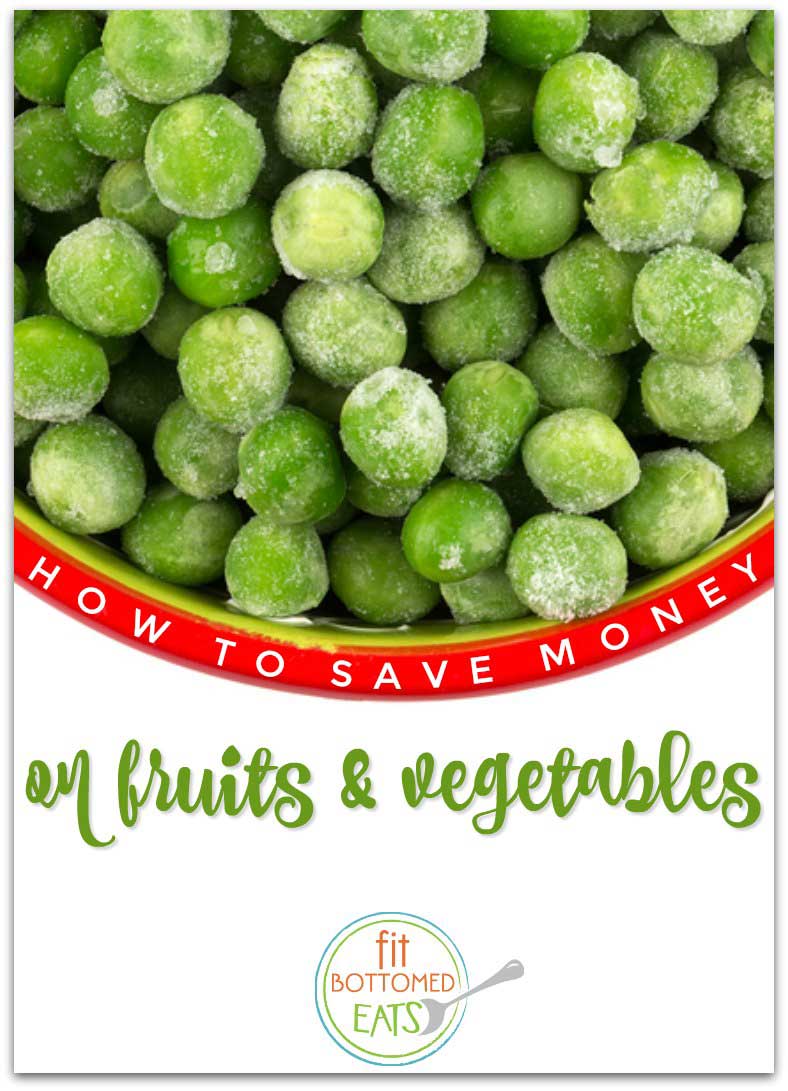How to Save Money on Produce

How smart a grocery shopper are you? Americans report spending $151 dollars a week on food — that’s $7,852 a year. Now, I don’t spend quite that much, personally (which seems fair since it’s only my husband and me), but I know that a decent percentage of what I spend at the supermarket goes to the produce department … and all too often, a fair amount of that produce ends up in my composter. (I’m the worst.)
That’s why I’m pumped to share some produce shopping tips from Lisa Suriano, nutrition expert and CEO of Veggiecation!
How to Save Money on Produce
Freeze fresh herbs. For recipes, we often only need a tiny bit of the bunch of fresh herbs we purchase. The rest withers away in our refrigerator at bottom of the vegetable drawer. Rotten food is wasted money! Instead, chop up herbs like parsley, cilantro and basil, mix them with a little bit of olive oil and freeze them in ice cube trays. They will be ready to add to a dish next time you need them.
Don’t frown on frozen fruits and veggies. Frozen produce is “flash frozen” the moment it is harvested. This means that it maintains its peak amount of nutrition right up until the moment it is cooked, unlike its fresh counterpart, which continuously loses nutrients as the produce ages. Also, most often frozen produce is significantly less expensive. Therefore, stocking up when there are sales is great way to always have healthy options on hand and save on your food budget.
Beef it up with beans. Beans and legumes are an inexpensive, highly nutritious protein source. Adding items like kidney beans, lentils and peas to soups, salads and chilis can stretch out a recipe to feed more people without the need to purchase more expensive meats.
Prep your veggies for proper storage. When you purchase beets, cut off the top greens and the little tail ends. This will keep them fresher much longer. Plus, the greens are highly nutritious and are delicious sautéed with a little olive oil and garlic.
The same is true for carrot tops. Removing the greens from the orange root will keep them significantly crisper for longer. And those nutrient dense greens can be made into a tasty pesto!
Onions and potatoes must be stored separately. As they age, each gives off gases that speed up the deterioration process of the other.
There is no need to purchase soup stock. Don’t waste your money on stock. Instead save vegetables scraps such as carrot peels, celery leaves and herb stems in a freezer friendly storage bag. When it is filled up, throw it all in a stock pot with water and boil yourself up some free stock! This also works great with the bones from a rotisserie chicken.
Eat whole snacks. There are so many great, healthy snacks on the market today — but many can come at a very high cost per serving. You can save by sticking with a snack consisting of a handful of nuts or seeds and a piece of whole fruit. The protein and fat in the nuts will satiate your appetite and the sugar in the fruit will satisfy that sweet tooth at a much lower cost per day.
How many of these tips were new to you? I probably should’ve known about the potatoes and onions, but … well, I’m off to put them in separate bowls right now! —Kristen
